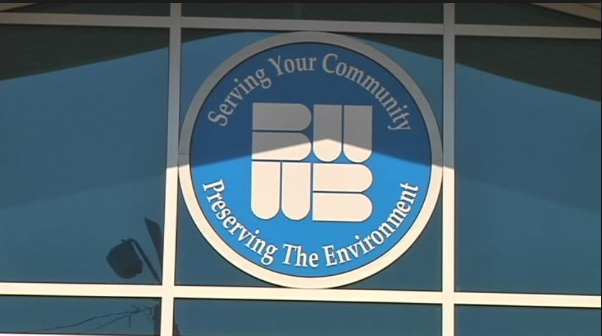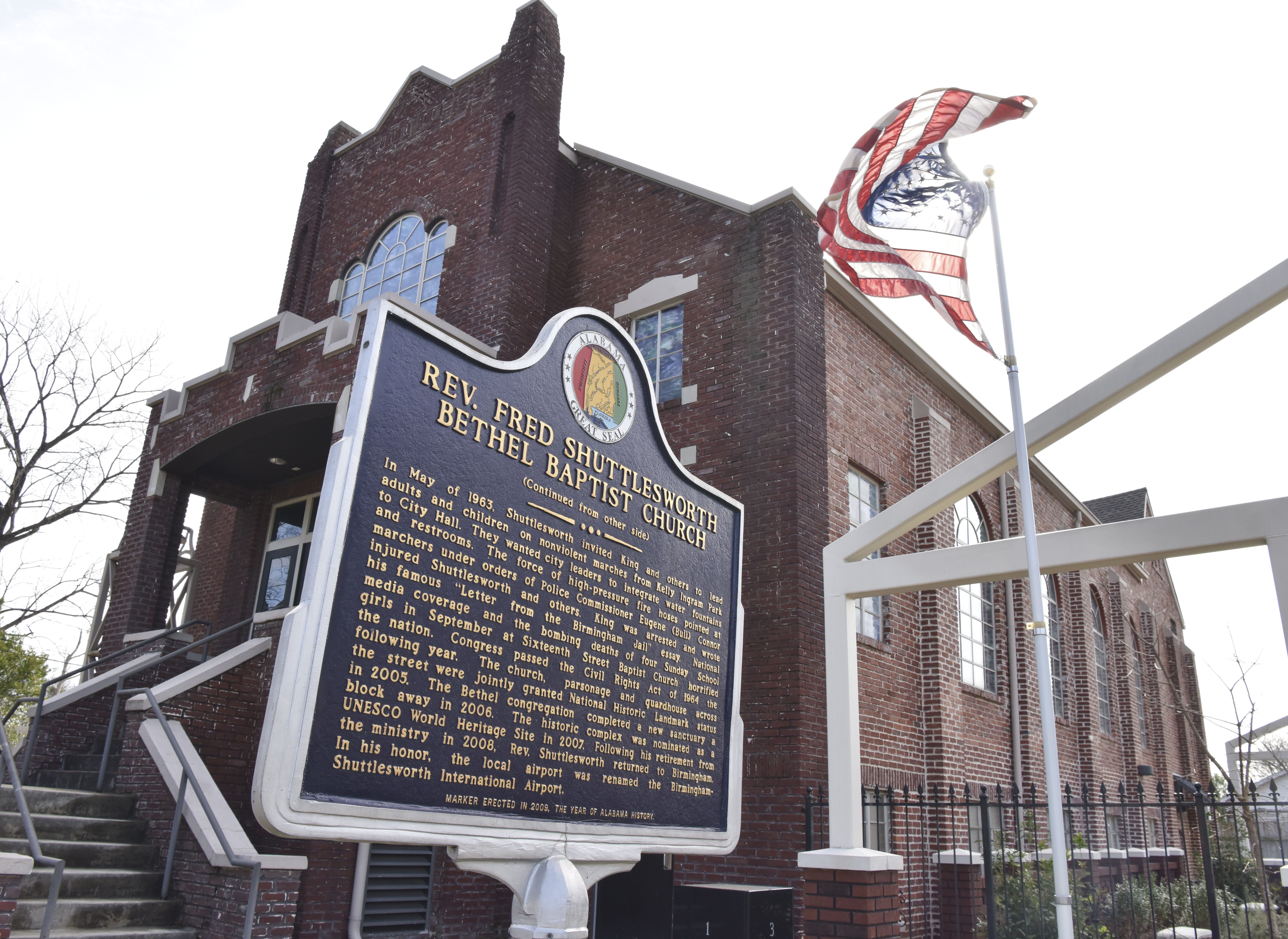
By Nathan Turner Jr.
For the Birmingham Times
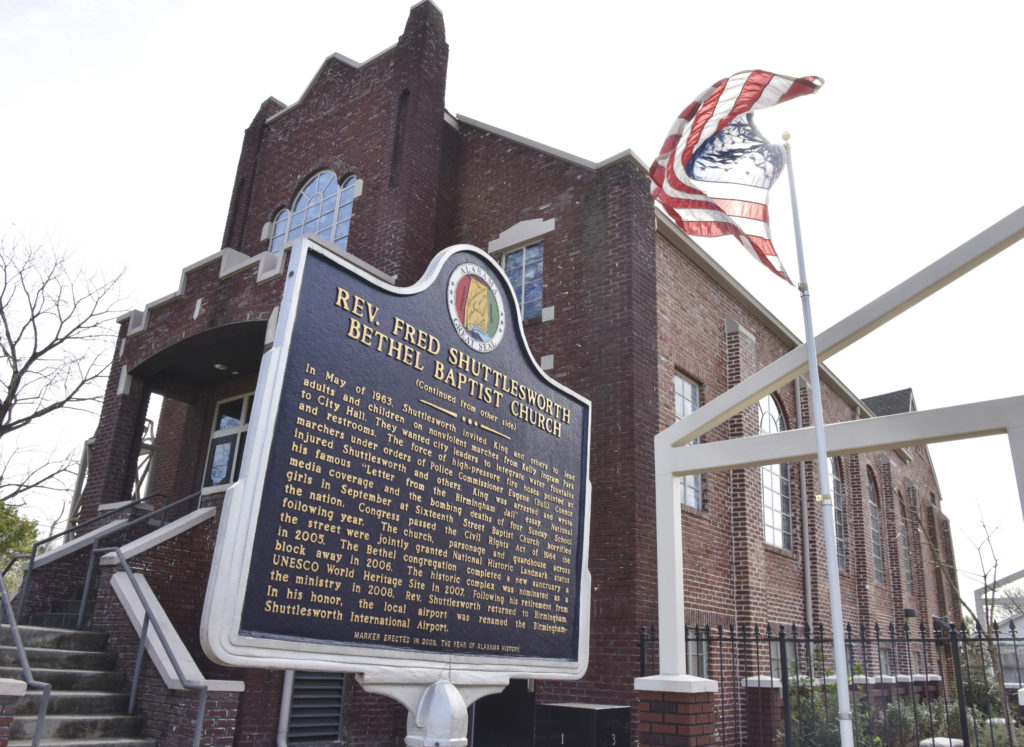
Marian Jones Daniel was 16 years old when a dynamite blast rocked the basement at Bethel Baptist Church in Birmingham’s Collegeville neighborhood on the evening of Dec. 13, 1962.
She and a handful of other young people had just finished cleaning up the church in preparation for the annual Christmas program. The blast was so loud that Daniel’s father, William Jones, a laborer at a nearby plant, heard the noise and ran the four and half blocks from the family home to the church. Her grandfather, church trustee James Revis, was already on site after shuttling a group of children to their homes after the clean-up project.
Birmingham Public Safety Commissioner Eugene “Bull” Connor had tried to halt the youngsters as they tried to leave the building, telling the group to remain inside the church, supposedly because of dangling electrical wires, Daniel recalled. But, by this time her father had arrived. “No,” her father said emphatically, “they are coming out.” He and Daniel’s grandfather then defiantly escorted the children from the damaged structure.
“We were dazed and shaken, but not enough for us to miss our Christmas program,” said Daniel, now 70 and a resident of Brownsville Heights in East Birmingham. Her body still bears scars from windows shattered in the explosion.
Historic Landmark
The Bethel Baptist Church complex was added to the Alabama Register of Landmarks and Heritage on Nov. 13, 1996. It was included in the National Register of Historic Places and declared a National Historic Landmark on April 5, 2005.
The original church, located at 3233 29th Ave. N, has been the focus of restoration efforts. And the congregation built a new house of worship nearby in 1997.
Bethel Baptist is also part of the Civil Rights National Monument designation awarded by President Barack Obama shortly before he left office in January 2017, although much of the focus has been on sites in the downtown civil rights district.
It was inside Bethel Baptist that the Rev. Fred L. Shuttlesworth, who pastored the church from 1953 to 1961, helped found the Alabama Christian Movement for Human Rights (ACMHR) in 1956 with other area ministers. The organization’s goal was to fill a void left after Alabama Attorney General John Patterson banned the National Association for the Advancement of Colored People (NAACP) from operating in the state.
With Bethel as its center of operations, the ACMHR played a pivotal part in the 1961 Freedom Rides that successfully desegregated public transportation on a national scale, as well as the 1963 civil rights campaign that led to the Civil Rights Act of 1964.
Despite Bethel Baptist’s crucial role in the civil rights movement, the church, organized in 1904, has often received less attention than other places in Birmingham, such as the Sixteenth Street Baptist Church. But Bethel remains proud of its position and accepts its place in the struggle for equal rights, says the Rev. Thomas Wilder Jr., current pastor of the church.
“This was the place, by most accounts, where the Rev. Shuttlesworth led the civil rights [fight] before the Rev. Dr. Martin Luther King Jr. came to the city,” Wilder said. “Bethel was one of the first places where they met to march downtown to protest segregation. … They were so tired after the marches, that they moved protest meetings to Sixteenth Street Baptist” for a shorter journey, said Wilder.
Each church had to play its role, he said: “Sixteenth Street Baptist played their part, and we played ours.”
Wilder said the murder of the four young girls at Sixteenth Street Baptist Church on Sept. 15, 1963, traumatized the nation, and the “loss of innocents” showed the true hatred and viciousness inherent in opposition to civil rights.
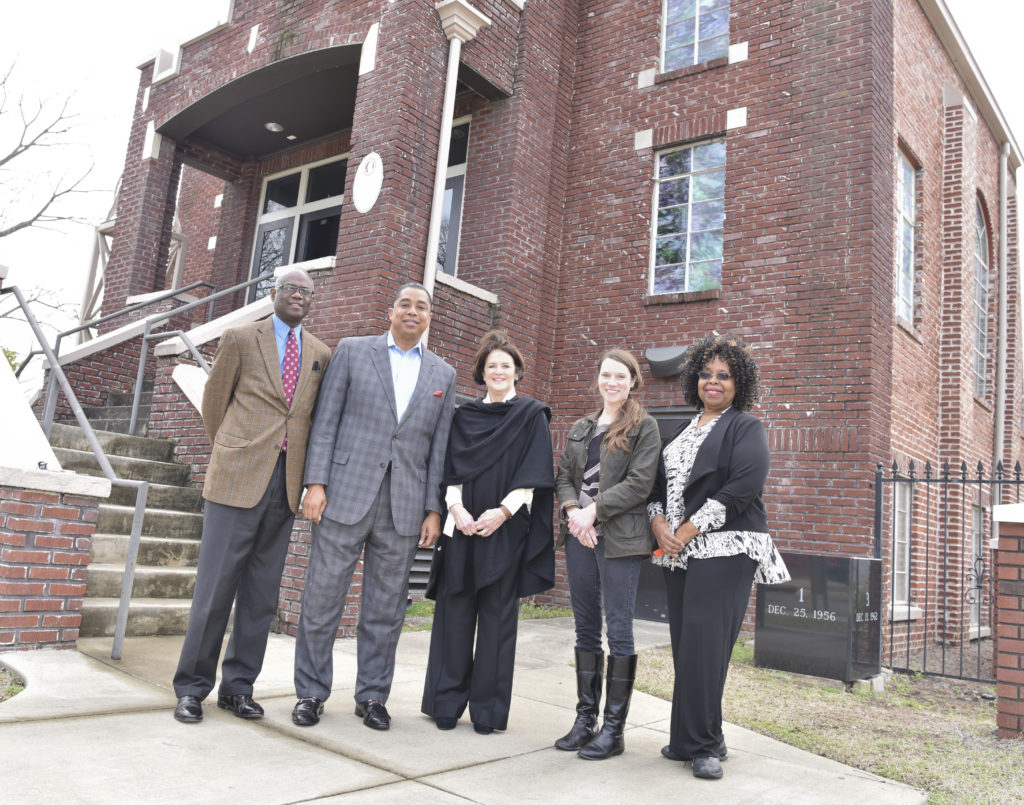
16 Sticks of Dynamite
Bombings occurred so frequently in Birmingham during the civil rights era that the city was often called “Bombingham”—and Bethel was a target. In fact, bombings at Bethel Baptist were “nothing new,” said Daniel, referring to the 1962 incident, which was the third explosion that hit the church.
On Dec. 25, 1956, 16 sticks of dynamite destroyed the church parsonage, where Shuttlesworth lived. And on June 29, 1958, a bomb was detected on the east side of the church and moved to a vacant lot before exploding.
Segregationists nearly killed Shuttlesworth and his family in the December 1956 blast—but the attack only emboldened him. The next day, as scheduled, Shuttlesworth, other members of the ACMHR, and 200 other blacks rode in the white sections of city buses without incident, according to historians.
After one bombing, Shuttlesworth stayed at Daniel’s grandfather’s house while his family lived elsewhere. The tension of the times was evident, she said. One time, a loud noise startled the family, but it was the sound of a delivery boy’s tossed newspaper hitting the porch.
In the 1958 Bethel bombing, no one was injured in the blast. In that incident, Daniel’s aunt, Luverne Martin, noticed the dynamite near the church and alerted a watchman, Bob Hall, who carried the device across the street where it exploded.
Daniel says she felt safer after neighborhood men began standing guard at her grandfather’s house, which was across the street from Bethel. But, she said, Birmingham police officers harassed the men.
“Officers talked down to them … called them ‘boy’ and other derogatory names,” said Daniel, a retired Southern Natural Gas Co. (SONAT) employee who has been the church organist and pianist for the past decade.
Shuttlesworth left the city in 1961 to pastor Greater New Light Baptist Church in Cincinnati, Ohio. Daniel recalls that after the third bombing in 1962, his successor, the Rev. Vincent Provitt, suggested that a sign be placed in the window of the parsonage to alert terrorists that Shuttlesworth was no longer living there.
Warrior
“Shuttlesworth was strong and taught us to not fear anybody but God,” said Daniel. “He was a warrior despite threats on his life.”
Daniel recalled that Shuttlesworth risked his own well-being on numerous occasions. This included assisting the interstate Freedom Riders in 1961, as well as his attempt to desegregate John Herbert Phillips High School in 1957. During that incident, racists beat Shuttlesworth and stabbed his wife.
Martha Bouyer, executive director of the Historic Bethel Baptist Church Foundation, said Shuttlesworth’s activities at Bethel were pivotal to jump-starting the U.S. civil rights movement. Prior to Shuttlesworth, civil rights activities around the South mostly targeted bus desegregation.
“Shuttlesworth attacked segregation at all levels—buses, schools, [all-white] police forces, voting. He was in your face,” said Bouyer, who is also vice chairwoman of the Jefferson County Board of Education.
Bouyer has led efforts to incorporate history lessons about the Bethel Baptist Church bombings and other civil rights events into the curriculum for Jefferson County students.
Shuttlesworth brought King to Birmingham, said Bouyer: “Shuttlesworth believed in direct action, and it worked for him, … but many preferred King’s [more indirect] approach.”
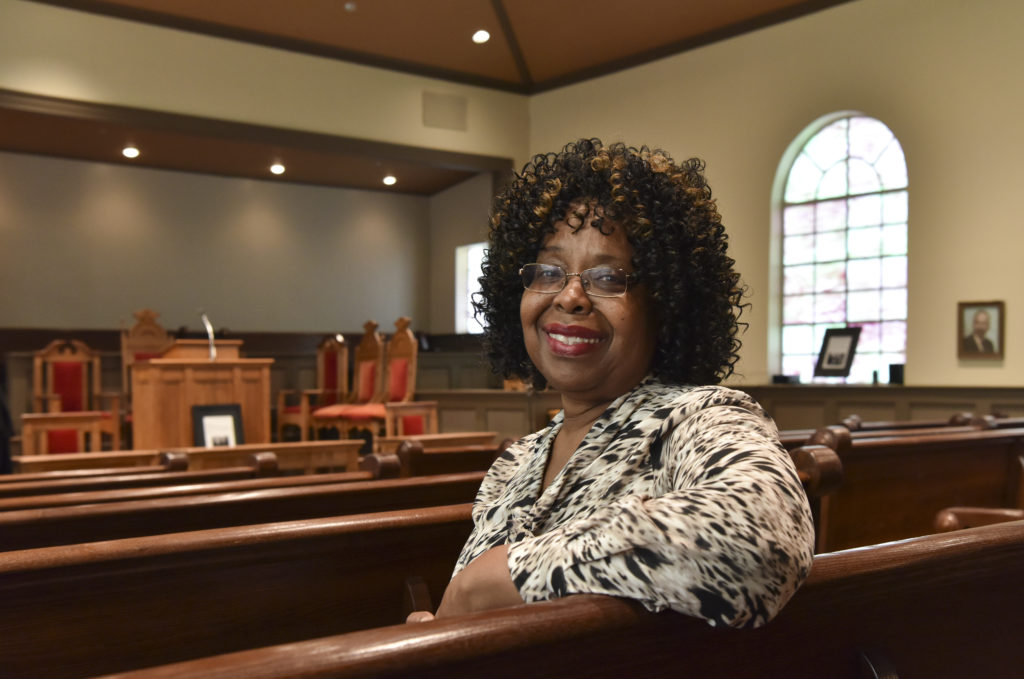
“A Few People Can Do Wonders”
Despite the bombings at Bethel Baptist, the congregation never missed a church service, Wilder said.
“The goal of the bombings was intimidation, but [the perpetrators] were not successful because the people just kept coming back,” he said.
Wilder, a native of Aliceville in Pickens County, recalls that Shuttlesworth told him he had resolved that either he was going to kill segregation or segregation was going to kill him. Without Shuttlesworth, King, and area demonstrations, the system of segregation would likely have lasted another decade or more in the city and throughout the South, Wilder said.
The story of Bethel Baptist Church, intertwined with Shuttlesworth’s, is fundamental, says Wilder. It shows the importance of knowing details of past struggles and having spiritual faith, and it highlights the idea that “a few people can do wonders,” he said.


